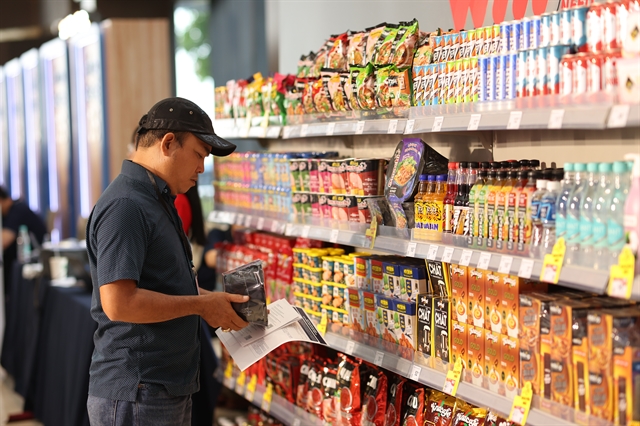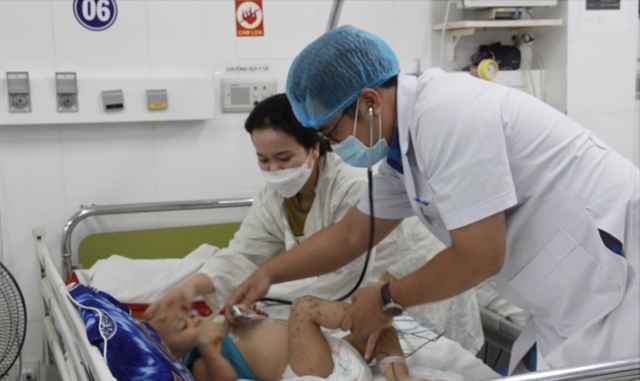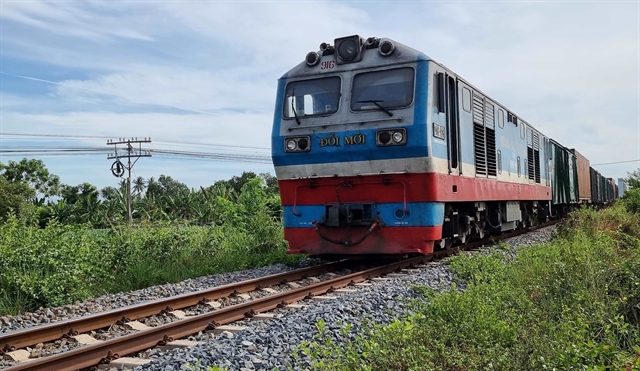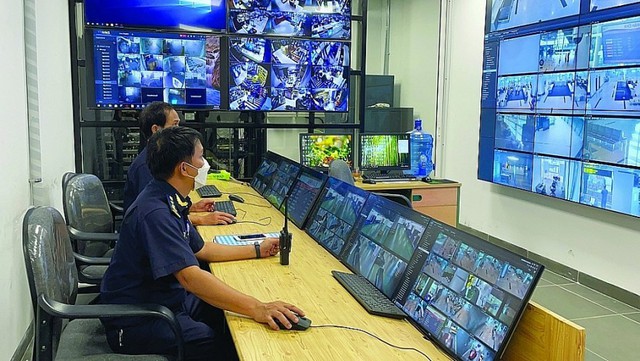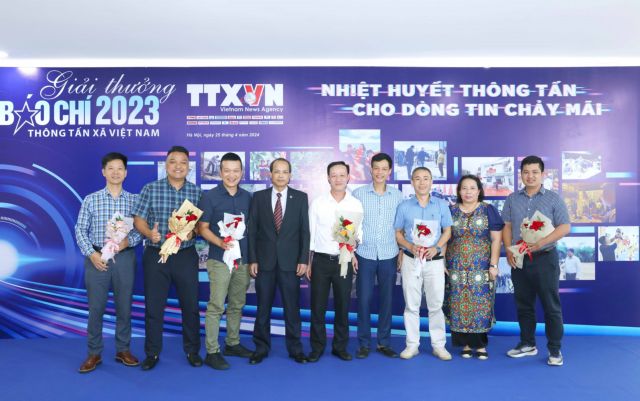 Society
Society
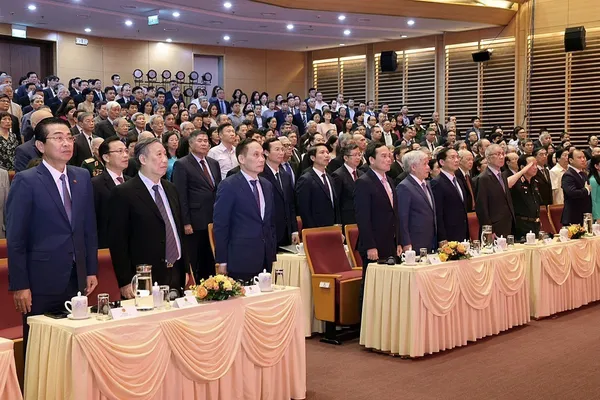
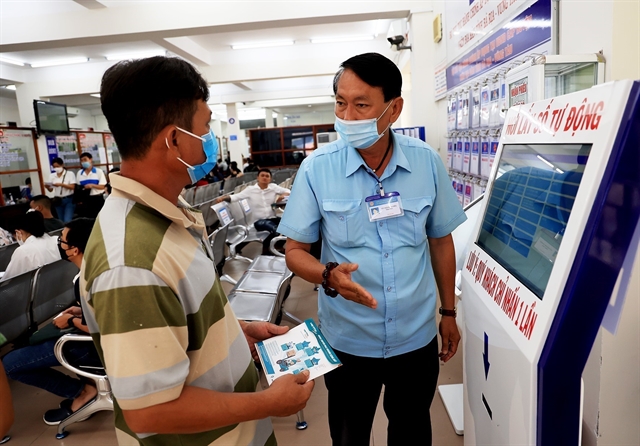 |
| A resident listens to guidance on completing procedures at the Vũng Tàu City Administrative Centre. — VNA/VNS Photo Hồng Đạt |
BÀ RỊA-VŨNG TÀU — Bà Rịa-Vũng Tàu Province targets being in the top 10 leading localities nationwide for digital transformation by 2025 and is implementing many solutions so that by 2030, it will have completed its digital transformation into a smart city.
Nguyễn Văn Thọ, deputy secretary of the provincial Party's Committee, chairman of the provincial People's Committee and head of the provincial steering committee for digital transformation, said that digital transformation would shape an overall way of life, working and production methods based on digital technology.
There is an indispensable need for leadership in socio-economic development. One of the ten key tasks for 2020-25 is strengthening science and technology applications, creating a start-up ecosystem, promoting administrative reform, digital transformation, and building a smart city.
The provincial People's Committee has an action plan assigning specific tasks to localities to promote digital transformation with three main goals: digital government, digital economy and digital society.
Director of the provincial Department of Information and Communications Đỗ Hữu Hiền said that as for digital government, the province would accelerate digital infrastructure and a high-speed internet connection and ensure information safety, network security, create a technical foundation for information technology application in all fields.
It gradually formed a digital data storage ready to connect and share information and data across the province and integrated in the national data portal.
As for the digital economy, the province focuses on improving e-commerce activities and developing e-commerce applications on a mobile platform.
It encourages businesses and individuals to start up with new e-commerce business models, considers e-commerce as one of the pioneering fields of the digital economy, invests in digital transformation for sustainable development and creates a more efficient production model.
As for digital society, Bà Rịa-Vũng Tàu Province trains foreign languages, digital knowledge and skills for workers to be ready to adapt to the digital transformation process.
It focuses on developing high-quality human resources in key fields.
The province also applies new educational models for students at all levels and invests in building and upgrading telecommunications and information technology infrastructure.
It encourages digital technology enterprises to invest in priority areas such as health, education, tourism and transport.
Work together
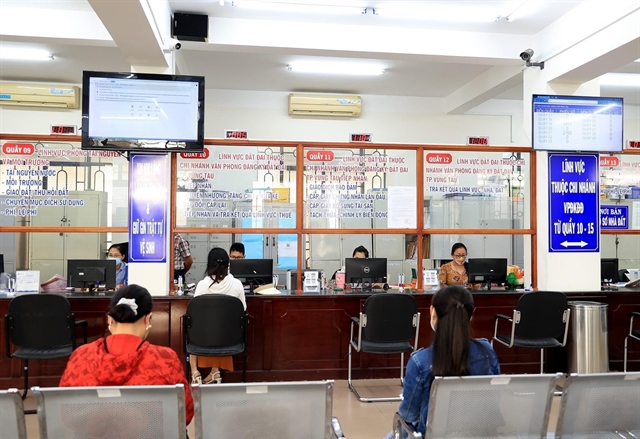 |
| People wait for their turn at the Vũng Tàu City Administrative Centre. — VNA/VNS Photo Hồng Đạt |
Director Hiền from the Department of Information and Communications said that one of the basic advantages of the province in implementing digital transformation was that it had clear orientations and directions from central to grassroots levels.
The province has many documents directing solutions, from which all organisations have taken drastic action.
This year, the information and communications sector worked with the agriculture and rural development sector to publish information about households' products on the e-commerce platform.
The province introduces key products on mass media and digital platforms to expand domestic and international markets.
Deputy Chairman of Vũng Tàu City People's Committee Vũ Hồng Thuấn said that in recognising the important role of the digital society, the city has built a digital agency.
It targets all workers with basic digital transformation knowledge and a bank account or e-wallet. They can pay online electricity, water, internet, and telephone fees.
The city also encourages owners of trading establishments to make non-cash payments by creating QR codes and using bank card payments.
It step-by-step builds cashless payment streets to help people get used to online payment.
The city sets a target that by the end of this year, 90 per cent of the city's historical monuments and tourist attractions will have QR codes, all supermarkets will have accounts on e-commerce platforms, and at least 30 per cent of hotels will have their own websites, ready to join the province's tourism e-commerce platform. In addition, about 30 per cent of agricultural production households have accounts on the e-commerce platform.
Results
Statistics of the provincial steering committee for digital transformation showed that in the past two years, all of the localities in the province have digital transformation plans with specific contents, targets and completion times following requirements from the steering committee.
Administrative reform was conducted with procedures resolved online.
The province runs the provincial smart city monitoring and management centre for trial.
By the middle of last month, 92.7 per cent of people in the province had smartphones, surpassing the target by nearly 8 per cent. All businesses use e-invoices. As many as 64 per cent of agricultural production farmers have accounts on e-commerce platforms.
Four markets in Vũng Tàu City have piloted a model of non-cash payment, to which business owners and consumers have unanimously responded.
Đỗ Minh Tuấn, deputy director of the provincial Department of Agriculture and Rural Development, said that the agricultural sector worked with concerned agencies to post information and images of OCOP (one commune, one product) products on the e-commerce platform.
They created nearly 24,600 digital data accounts, supporting many businesses to use QR codes to make clear goods' origins, meeting all strict requirements of the market.
The Bà Rịa-Vũng Tàu Department of Tourism last year established the tourism e-commerce platform at dulichbariavungtau.com to recover tourism activities effectively and quickly when the COVID-19 pandemic is under control.
Convenience
Nguyễn Thị Minh Tuyết, who lives in Ward 8, Vũng Tàu City, said that she was old and was not proficient in information technology.
When she needed to complete administrative procedures, she received timely guidance and support from the Vũng Tàu City youth union members.
Hồ Hoàng Kha, deputy director of the Sông Xoài Cooperative in Phú Mỹ Town, said that the cooperative specialised in large-scale grapefruit growing. The product has been certified VietGap (Vietnamese Good Agricultural Practices) standards. It is also about to be recognised as an OCOP product and granted a code.
Therefore, the cooperative realised that digital transformation was necessary and brought many benefits.
The cooperative's products can join the e-commerce platform thanks to digital transformation. Cooperative members also quickly receive useful information about cultivation techniques and agricultural market prices or learn effective production models everywhere.
Nguyễn Thị Thu Hà, owner of a pastry shop on Hoàng Hoa Thám Street in Vũng Tàu City, said that she was interested in digital transformation, online shopping and non-cash payments.
Recently, the municipal authorities guided her about the digital economy.
Proud to live in a tourist city, she always encourages tourists and locals to make purchases without using cash.
In the coming time, her store will be equipped with a cashless payment device to facilitate shoppers and better the store management. — VNS

